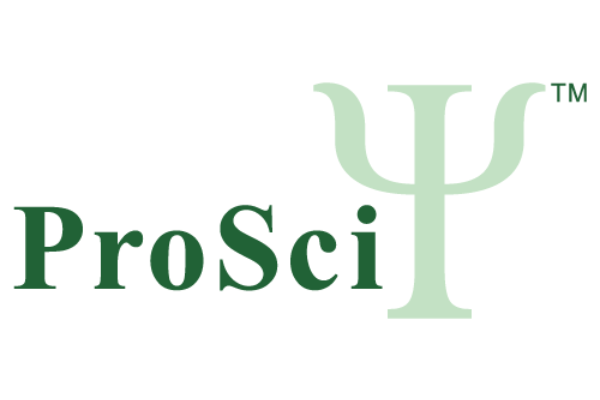
Introduction
Single Domain Antibodies (sdAb), also known as Nanobodies™, VHH antibodies and camelid antibodies, are at the forefront of antibody research in HIV, cancer, and other cellular diseases. sdAbs lack light chains and are smaller and more stable than conventional antibodies, yet they possess fully functional antigen-binding capacity. Due to its size (a mere 15 kDa), a single domain antibody is adept at reaching otherwise inaccessible epitopes that may play a crucial role in the molecular mechanisms of disease.
Limitations of Conventional Antibodies
For decades, conventional antibodies (such as monoclonal [mAb] and polyclonal [pAb]) have served as the foundation for highly successful research, diagnostics, and therapeutic tools. They have advanced discoveries in many areas but have limitations in applications that require stability over a wide pH, sustained high temperatures, or due to their size they may not be able to access particular active sites or epitopes of interest on proteins.
These disadvantages might not hinder research results, but a smaller-sized single domain antibody can increase therapeutic efficacy.
A study from the Annals of Medicine, about the challenges in monoclonal antibody-based therapies, pointed out how the current manufacturing and purification processes of monoclonal antibodies cause limitations in the production capacity of therapeutic antibodies, which leads to an increase in cost (1).
In a study by Vanlandschoot et al. (2), the advantages of sdAbs were reviewed in relation to their possible therapeutic applications against various viral diseases such as human immunodeficiency virus-1 (HIV-1), influenza A virus, reparatory syncytial virus (RSV), are discussed. View here. Such studies culminated in the first FDA-approved sdAb against von Willebrand factor to treat the blood disease Acquired Thrombotic Thrombocytopenia (3).
How Single Domain Antibodies Can Help
Single domain antibodies from camelids aim to be a cutting-edge tool for antibody research in cellular mechanisms, cancer, and infectious diseases. Single domain antibodies lack light chains and are smaller and more stable than conventional antibodies, yet they possess a fully functional antigen-binding capacity. Due to their size (approximately 15 kDa) and their longer and structurally unique Complementary Determining Region 3 (CDR3 region), a single domain antibody is adept at reaching otherwise inaccessible unique conformational features on targets that may play a crucial role in the molecular mechanisms of disease.

Advantages of Single Domain Antibodies:
• Smallest functional antibody unit at ~15kDa; conventional antibody is ~150kDa
• Enhanced tissue penetration, can cross the blood-brain barrier
• Unique binding capacity to small cavities or clefts
• High affinity and specificity
• Highly stable under extreme temperature and pH
• High solubility, great imaging agents due to rapid clearance in vivo
• Cost-effective, large-scale production
The unique properties of size, stability and solubility for a single domain antibody allow breakthroughs in the field of cancer research, drug development, and other life-saving therapies.
Learn more about the applications of single domain antibodies here.
Single Domain Antibody Development and Production Services
ProSci Offers Single Domain Antibody Services from Immunisation to Production. Throughout all six phases (from immunisation to production), single domain integrity is ensured with ProSci’s unwavering commitment to customer satisfaction and multiple quality control checks. If your clinical application calls for a single domain antibody, purchase ProSci single domain antibodies with confidence!
ProSci have earned the trust from both private and public research sectors, working in a variety of research applications – therapeutic, general research, diagnostic, pharmaceutical and many more.
If you have any questions about ProSci’s custom Single Domain Antibody Service, please contact us.
Products Now Available
At the onset of the COVID-19 pandemic, ProSci developed antibodies against the S1 and S2 subunits of spike protein as well as trimers of the wild type SARS-CoV-2 virus and other Variants of Concern. View ProSci’s SARS-CoV-2 Spike Single Domain Antibodies here.
ProSci also provides sdAbs against immune checkpoint targets such as PD-L1, PD-1, LAG3, and TIGIT.
References
- Samaranayake, H., Wirth, T., Schenkwein, D., Räty, J. K., & Ylä-Herttuala, S. (2009). Challenges in monoclonal antibody-based therapies. In Annals of Medicine (Vol. 41, Issue 5, pp. 322–331). Informa UK Limited. https://doi.org/10.1080/07853890802698842
- Vanlandschoot, P., Stortelers, C., Beirnaert, E., Ibañez, L. I., Schepens, B., Depla, E., & Saelens, X. (2011). Nanobodies®: New ammunition to battle viruses. In Antiviral Research (Vol. 92, Issue 3, pp. 389–407). Elsevier BV. https://doi.org/10.1016/j.antiviral.2011.09.002
- Scully, M., Cataland, S.R., Peyvandi, F., Coppo, P., Knöbl, P., Kremer Hovinga, J.A., Metjian, A., de la Rubia, J., Pavenski, K., Callewaert, F., Biswas, D., De Winter, H. and Zeldin, R.K. for the HERCULES Investigators. (2020). Caplacizumab Treatment for Acquired Thrombotic Thrombocytopenic Purpura. https://pubmed.ncbi.nlm.nih.gov/30625070/
- Liu Hao, Liu Yanli, Zhao Zhen, Li Yuanke, Mustafa Bahaa, Chen Zhijin, Barve Ashutosh, Jain Akshay, Yao Xiaolan, Li Guangfu, Cheng Kun. (2022). Discovery of Anti-PD-L1 Human Domain Antibodies for Cancer Immunotherapy. https://www.frontiersin.org/article/10.3389/fimmu.2022.838966
- Pothin E, Lesuisse D, Lafaye P. Brain Delivery of Single-Domain Antibodies: A Focus on VHH and VNAR. Pharmaceutics. 2020;12(10):937. Published 2020 Sep 30. doi:10.3390/pharmaceutics12100937
- Gonzalez-Sapienza Gualberto, Rossotti Martín A., Tabares-da Rosa Sofía. (2017) Single-Domain Antibodies As Versatile Affinity Reagents for Analytical and Diagnostic Applications. https://www.frontiersin.org/article/10.3389/fimmu.2017.00977
Information originally posted on www.prosci-inc.com/blog/single-domain-antibodies
Caltag Medsystems is the distributor of ProSci products in the UK and Ireland. If you have any questions about these products, please contact us.
